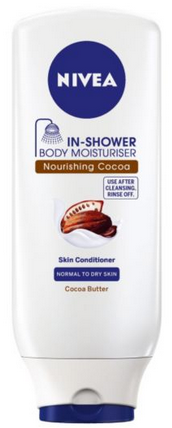Tackle teen exam angst
With exams coming up, even the most level-headed teenager is likely to be anxious. So we asked Dr. Jenny Brockis, who specialises in boosting mental performance and life skills through practical neuroscience, to suggest ways of supporting them through the run-up. • Firstly, it is important to help young people keep things in perspective. While getting good exam results matters, none of us is defined by grades. Other things, such as keeping up friendships, doing things with the family and chilling out are just as important.
• Encourage your teenager to block study periods into chunks of 25 to 60 minutes (this can vary with the subject) and to take ‘brain breaks’ for 15 minutes in between to grab a glass of water – which keeps neurons hydrated – and a healthy snack.
• Refuelling every two to three hours keeps blood sugar steady. Ensure they eat a protein-filled breakfast and don’t skip meals. They should avoid junk food – it can lower mood, energy and thinking. Snack on vegetable sticks and hummus, fruit, nuts and seeds.
• Keep moving. Studies show that taking part in regular sport, especially in a team, reduces stress, boosts energy and improves academic performance. It is better to spend 30 minutes being active with friends than doing extra revision. Even going outdoors for a 20-minute walk will refresh the brain and clarify thinking.
• All brains need sleep and teenagers need around nine hours a night to consolidate long-term memory, regulate emotion and deepen their understanding of what they have learnt. Help them keep to a regular schedule for going to bed and getting up.
• Encourage them to switch off all technology two to three hours before bed. The blue light emitted by laptops, tablets, smartphones and televisions fools the brain into thinking it is still daytime.
• Some teens find silence stressful. Quiet instrumental music (no lyrics) may help them focus.
• Dr Jenny Brockis is the author of Future Brain: The 12 Keys to Create Your High-Performance Brain, published by Wiley, price £14.95
My colleague Susan, who gets home from work after 7pm, found it hard to make time to exercise so she bought a Confidence Fitness 2-In-1 Elliptical Cross Trainer & Exercise Bike from Tesco Direct because it was reasonably priced and had good reviews. ‘My partner assembled it in 45 minutes and it is sturdier than I expected. You can use it as an exercise bike or a cross-trainer. It gives you time, speed, distance and calories burnt, and has adjustable resistance and forward and reverse motion; the maximum user weight is 110kg. I use it for 20 minutes every evening and am really pleased with it.’ From Tesco Direct via The Sports HQ/£73.99 plus postage, www.tesco.com/0800-323 4050
Q. I have lots of old-age warts. They are different shapes and shades of brown, raised, crusty and hard to the touch. The GP says they are harmless but they are unsightly – is there any way of removing them?
A. Consultant dermatologist Dr. Nick Lowe says these seborrheic keratoses (SKs) are common as people age. They are not related to UV damage and are not precursors of skin cancer. However, SKs may coexist with precursors of skin cancer so should always be checked by a doctor or dermatologist (for more information, visit www.healthline.com and search for ‘seborrheic keratosis’). Dr Lowe removes the top layers of larger SKs with a CO₂ laser. It usually takes one to two sessions. He then prescribes tazarotene gel, a topical retinoid drug, to be applied to the lasered sites and the remaining smaller warts. Use two to three times a week for five minutes then clean off with a moisturising wash (e.g. Nivea In-Shower Body Moisturiser/£3.69, www.boots.com, or Salcura Bioskin Body Cleanser/£12.99, www.victoriahealth.com). This will help treat existing SKs and prevent new ones. Tazarotene can be used weekly for maintenance. NB please read the contraindications and do not take during pregnancy.



